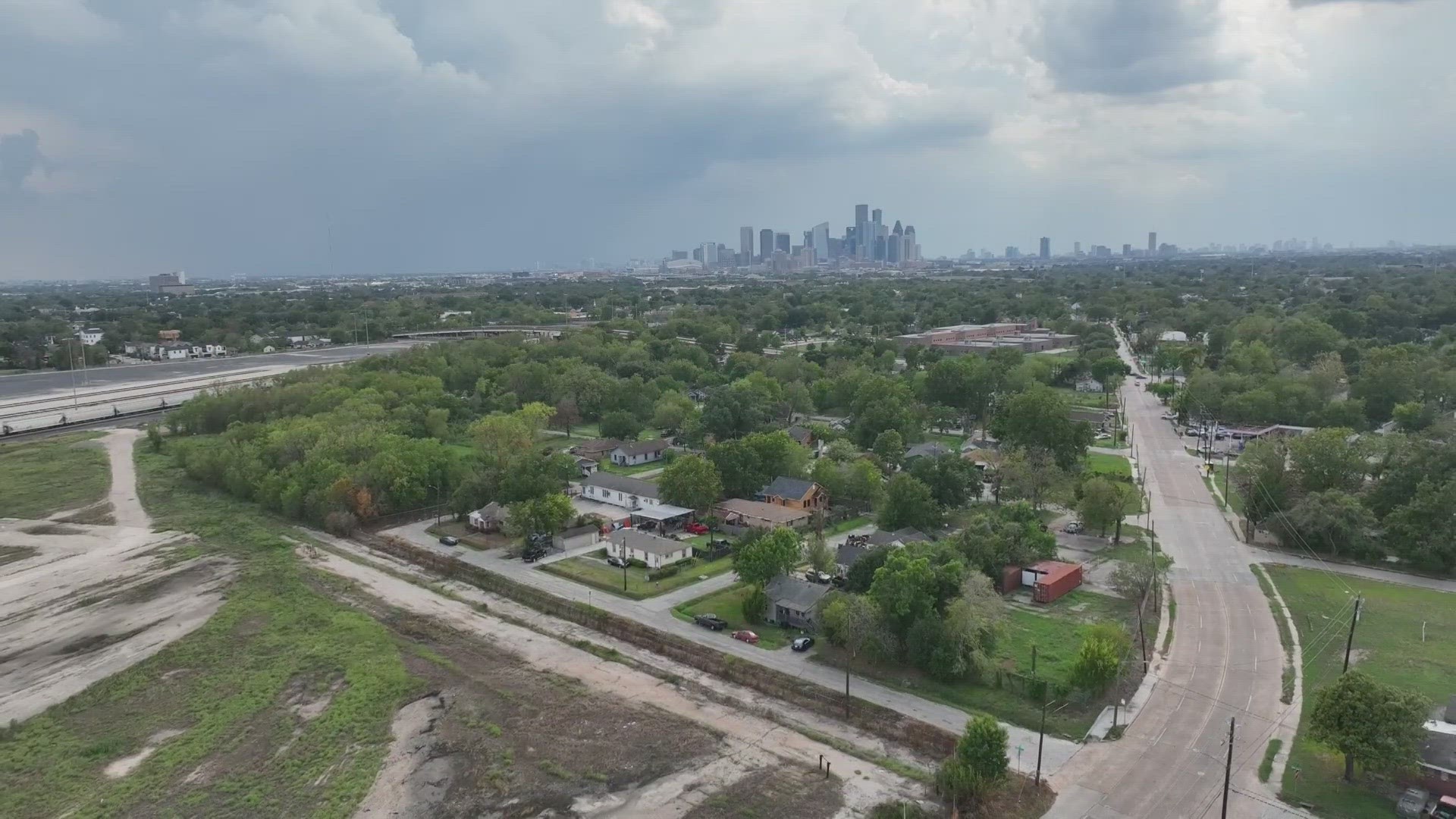HOUSTON — A $5 million relocation fund was created Wednesday for Houston-area residents living near a former creosote plant in east Houston.
The fund will provide voluntary relocation assistance to homeowners and renters living in a part of Kashmere Gardens where there's a higher cancer rate among residents. This includes about 41 residential properties north of Liberty Road, west of Lockwood, east of Wipprecht and south of Jewel.
"The City of Houston has a moral obligation to the extent we can set up this fund to allow some people an option if they choose to relocate. We will work out the details of this plan in collaboration with the community," Mayor Sylvester Turner said. "The only thing we are doing is creating the fund. It is important for us to put the weight of the City behind the people who have been fighting this issue for a very long time."
Though the $5 million relocation fund is a start, other nearby residents said it only covers a fraction of the people who need help.
In Houston's Fifth Ward, which sits just south of Kashmere Gardens, is the property owned by Union Pacific Railroad.
Up until the 1980s, it's where they kept huge piles of the black tar-like preservative called creosote. It's the stuff used to keep railroad ties and telephone poles from rotting.
It's also toxic.
Even though the creosote plant has been gone for decades, neighbors said the effects remain.
“Creosote’s coming out of the ground back here on my property," said Joe Ballard whose family has owned property on Amboy Street for generations.
Ballard said his great-grandafther built their home in the 1800s. It's where his 87-year-old mother still lives today.
Although Union Pacific disputes it, Ballard said the creosote still rises above ground after a hard rain.
In 2019, an analysis conducted by the Texas Department of Health and Human Services revealed elevated counts of cancers in certain areas of the Kashmere Gardens community.
"The analysis found cancers of the larynx, lung and bronchus, childhood acute lymphoblastic leukemia and esophagus at statistically higher than expected rates in certain census tracts," the City of Houston said. "For example, 185 cases of childhood leukemia, larynx, liver and lung and bronchus cancers were identified from 2000 to 2016, the period of the cancer cluster assessment."
In 2021, another report released by the Texas Department of State Health Services outlined even more upsetting results. The report revealed elevated levels of leukemia in children, according to the Houston Health Department. Five times the normal rate in one particular area within sight of the railroad.
The City of Houston said it will work with the Houston Land Bank, the Community Land Trust and others to assist with relocating residents out of the impacted areas, and it estimates that more than $30 million will be needed to relocate everyone in the affected area. Mayor Sylvester Turner is asking Union Pacific to provide some of that money.
In the meantime, Union Pacific said it's currently in the community asking permission from residents to conduct critical soil samples once the U.S. Environmental Protection Agency approves the testing plan.
"This additional testing will provide the essential data needed to make informed decisions regarding any required additional remediation," the company said in a statement.
Ballard said he's given permission for soil testing on his family's property but hasn't seen anyone doing any tests. He said moving his mother and relocating her, at this point, really doesn't make a lot sense because the damage is done.
His sister, who lives across the street, said one year ago she wouldn't have been interested in relocating, but now her mind has changed since her husband's cancer diagnosis.

